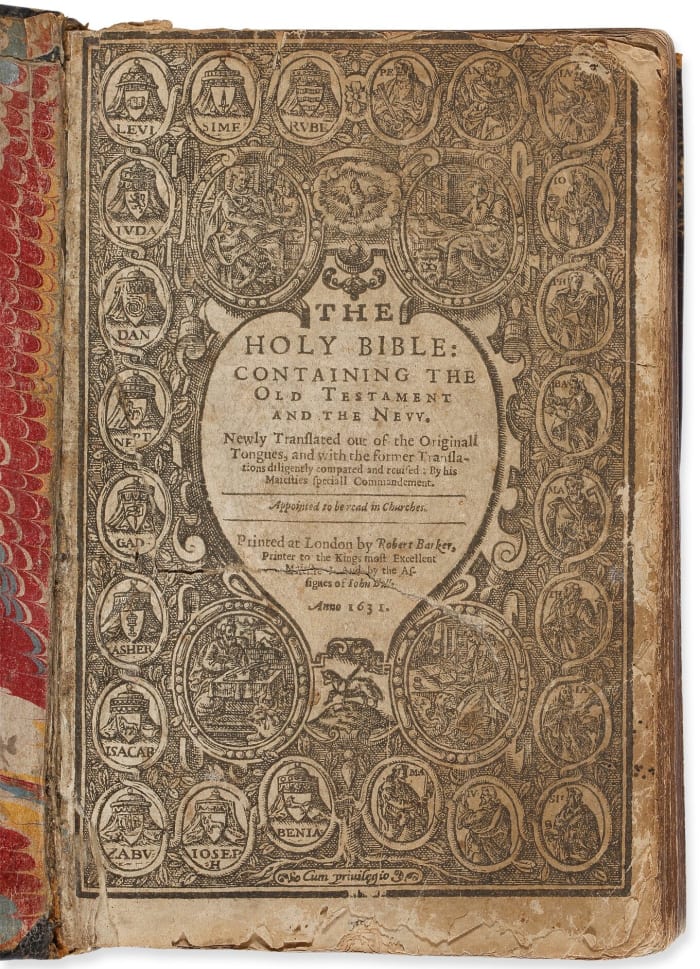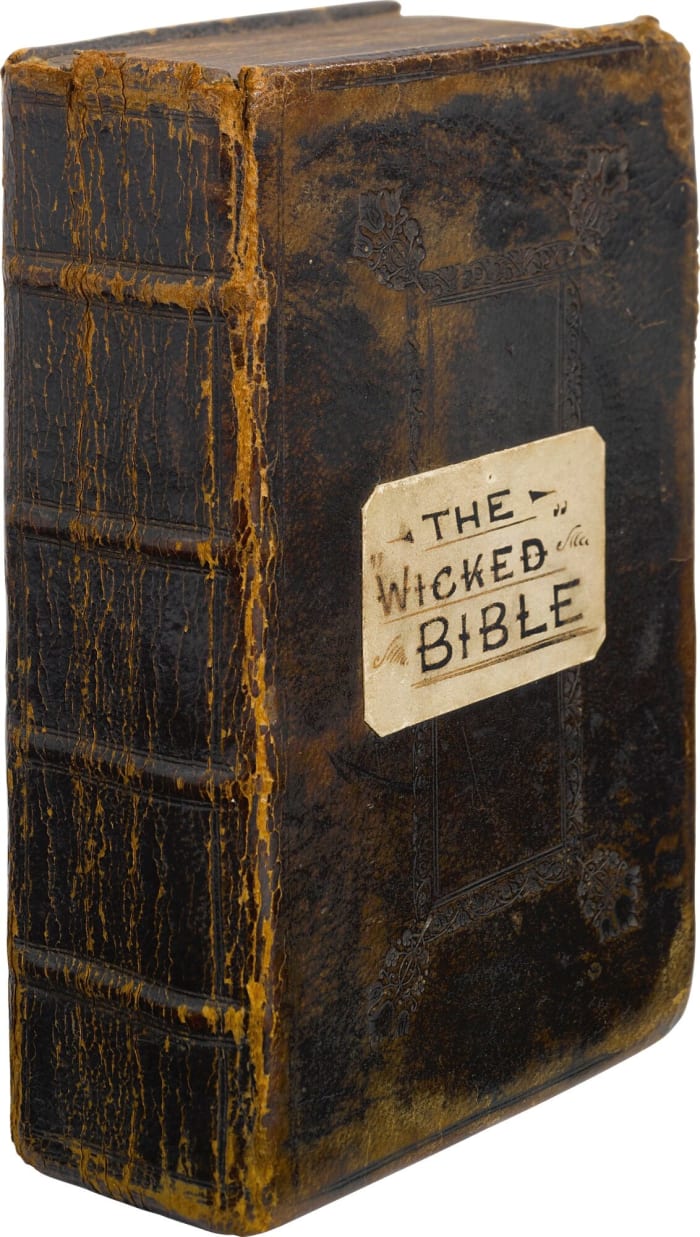Thanks to an omitted word in one of the Ten Commandments, a bible from the 1600s endorses extramarital hanky-panky.
In 1631, Robert Barker and Martin Lucas, London publishers and booksellers with Royal Warrants of Appointment, reprinted the King James Version Bible. It was an expertly crafted octavo edition, bound with exceptional Italian leather and printed on fine, smooth paper stock imported from Sweden — all of which made for an attractive edition. But flip through the copy to Exodus 20 and you’ll find a pretty standard version of the 10 Commandments until you hit verse 14: “Thou shalt commit adultery.”
Whoops. That missing “not” is kind of important.
When one of history’s most titillating biblical misprints was discovered a year later, there were guffaws throughout London, but at least one person not laughing was King Charles I. He summoned Barker and Lewis to the “Star Chamber,” fined them £300 (equivalent to more than $70,000 today) and stripped them of their printing licenses.
Nearly the entire print run of roughly 1,000 copies of the bible was seized and subsequently destroyed. As a result, extant copies are exceedingly rare and considered highly valuable by collectors. There are only fourteen known to exist today, most of which are in the collections of universities, museums, and libraries, including Oxford, Cambridge, the British Library, the New York Public Library and the Dunham Bible Museum in Houston, Texas.
In 2015, a copy sold at Bonhams for $43,210, while Sotheby’s has sold two copies: one in 2016 for $47,500 and another for $56,250 in 2018. There is another copy for sale at AbeBooks.com for $99,500.

The title page of the Wicked Bible that sold at Sotheby’s in 2018 for $56,250.
Courtesy of Sotheby’s
The nickname “Wicked Bible” seems to have first been applied in 1855 by rare book dealer Henry Stevens. As he relates in his memoir of James Lenox, after buying what was then the only known copy of the 1631 octavo Bible for fifty guineas, “on June 21, I exhibited the volume at a full meeting of the Society of Antiquaries of London, at the same time nicknaming it ‘The Wicked Bible,’ a name that has stuck to it ever since.”
As if a biblical endorsement of hanky-panky weren’t enough, there’s also some intrigue behind the error. There’s a rumor that another printer purposefully inserted the error, Diana Severance, the director of the Dunham Bible Museum told The Atlantic in 2015. The strongest evidence is the fact that there is a second error in the book. “In Deuteronomy 5:24, when it talks about the ‘greatness’ of God, it has ‘great-asse,’” she said.
The 10 Commandments appear only twice in the Bible: once in Deuteronomy 5, and again in Exodus 20, the very two places where the Wicked Bible contains errors. “One could understand a dropped ‘not,’ maybe, but ‘great-asse’ is not a typical typographical error,” Severance said. “It’s not just an accidental mistake.”
According to Bonhams, one suspect is rival printer Bonham Norton, whose motive may have been to “politically embarrass Barker.” The controversy did add to Barker’s decline in fortunes and reputation, and he eventually ended up dying in debtor’s prison in 1645.
The “Wicked Bible” isn’t the only one to contain a goof. There have been typos in other versions, including “The Vinegar Bible” from 1717 that dubs Luke 20: 9-19, The Parable of the Vineyard, as The Parable of the Vinegar; in 1804, 1 Kings 8:19 was translated as, “Thy son shall come forth out of thy lions,” rather than “out of thy loins”; and one from 1682 has Deuteronomy 24:3 as, “If the latter husband ate her” instead of “If the latter husband hate her,” and has come to be known as the “Cannibal’s Bible.”










